Keep the Tail Wagging is supported by pet parents. I occasionally earn a commission (at no additional cost to you) when you click through an affiliate link to one of my favorite products. Thank you for your support. Read More
On November 13, 2015, Zoetis, Inc. announced a new dog flu vaccine. “The new, killed virus vaccine will be administered in two doses, three weeks apart, to healthy dogs, eight weeks of age or older. Annual re-vaccination is recommended for maximum protection. Zoetis expects to begin selling the vaccine to customers within the next several weeks.” Source: Zoetis Press Release
Several years ago, I learned about the dog flu vaccine when people were concerned about taking their dogs to Chicago (where there was a large-scale outbreak) or having their dogs around dogs from Chicago at a blogging conference.
Personally, I haven't heard about a dog flu outbreak where I live, nor has this vaccination been recommended to me by our veterinarian since it hit the market.
What is the Dog Flu?
The dog flu (aka Canine Influenza) is a highly contagious disease of the respiratory system, and it can lead to kennel cough. When I read this, I shrugged and thought that our dogs would be okay because they were vaccinated for kennel cough. But this virus is a new strain that many dogs haven’t been exposed to before, and it affects dogs of any age or any breed.
What sucks is that the vaccination created for canine influenza isn’t guaranteed to protect against the flu, not by a long shot.
How is the Dog Flu Transmitted?
The virus doesn’t live on outside the host, so I’m not worried about taking our dogs on a walk, but I am concerned about nose-to-nose introductions. The dog flu virus is transmitted when a dog comes into close contact with a dog infected with the virus and through shared drinking areas (because it’s also in the dog’s saliva). Thankfully, my dogs don't go to the dog park or other places where they'll interact with dogs we don't know.
What are the Symptoms of the Dog Flu?
The symptoms are very similar to what I experienced the last time I had the flu. If you notice any or all of the following symptoms, contact your vet immediately:
- Coughing and/or sneezing
- Fever
- Nasal discharge with yellow/green mucus
- Difficulty breathing / rapid breathing
- No appetite
- Lethargy
How is the Dog Flu Treated?
The dog flu is very similar to the people flu, which breaks my heart because I was miserable for two weeks. Because of the similarity, you can’t give a shot or medication to make your dog feel better. It’s just essential that we keep our dogs comfortable and relaxed while the virus runs its course. There is a vaccination to protect our dogs from contracting the dog flu, but it doesn’t work for all dogs.
Your vet may prescribe a hydration treatment to protect against dehydration and antibiotics to treat any secondary infections like pneumonia.
The best thing is to keep your dog quiet and comfortable and feed a healthy diet.
It can take up to 30 days for your dog to return to his or her old self.
Natural Treatment for the dog flu: A friend of mine sent me a link to a natural treatment for the dog flu. Two treatments were mentioned: Phosphorus and Nox Vomica. I haven’t had experience with either of these. Check out the article to learn more.
About The Zoetis Dog Flu Vaccine
When I received the news of this new dog flu vaccine, I had a few questions:
- How effective is the dog flu vaccine?
- What are the side effects of the vaccine?
- How long does the immunity last?
- Have there been any adverse reactions that dog owners should watch out for should they get this vaccine?
The answers I received are confusing and don't make me confident that this vaccine is safe for my dogs, so I will wait and see. The below responses were received via email on Saturday, November 14, 2015, by B. Carmony, VP of Public Relations for Archer Malmo.
How effective is the dog flu vaccine?
Canine Influenza Vaccine, H3N2, Killed Virus* should be administered in two doses, three weeks apart, to healthy dogs eight weeks of age or older. Immunity is expected approximately three weeks after administration of the second dose.
What are the side effects of the dog flu vaccine?
We will collect pharmacovigilance data on this conditionally licensed vaccine over time.
How long does the immunity last?
Recommended annual revaccination with a single dose. Please visit CIVH3N2.com, which currently provides all the info available for this vaccine.
Have there been any adverse reactions to this vaccine?
The safety of this vaccine platform was demonstrated in field safety for the licensed product Vanguard® CIV H3N8. Pharmacovigilance data for Canine Influenza Vaccine, H3N2, Killed Virus will be closely monitored. The USDA has granted a conditional license for this vaccine based on initial satisfactory findings.
A Holistic Vet's Thoughts on the Dog Flu Vaccine
I reached out to Dr. Judy Morgan, who stated that it's always a guess which strain of the flu will show up; therefore, she doesn't recommend the flu vaccine for our dogs unless…
- there is a wide outbreak of the canine influenza in an area,
- we plan to visit an area (with our dogs) that is in the midst of a dog flu outbreak,
- and during our trip, we plan to expose our dogs to other dogs on the trip.
“Vaccine companies definitely like to do the scare tactics to get us to buy,” Dr. Morgan shares; she predicts that although it's essential to wait and see if the canine influenza returns this year, we'll see veterinarians, doggy day cares, and boarding facilities making the vaccination a requirement.
Before vaccinating your dog with the flu vaccine, do your homework and talk to your veterinarian about your dog's exposure/risk and any possible reactions.
How I'm Protecting My Dogs from the Canine Flu
Each year, somewhere in the country, there is an outbreak of a respiratory infection in dogs. I avoid dog parks and dog-friendly businesses to keep my dogs safe, and I focus on keeping their immune system. Feeding a raw food diet promotes gut health and the immune system, among other benefits. When there's a report of an outbreak, I add natural supplementation to boost the immune system.
Medicinal mushrooms offer powerful antioxidants, and I choose blends that support the immune system (Reishi, Cordyceps, Maitake, Chaga) and the respiratory system (Turkey Tail, Reishi, Cordyceps, and Maitake). My favorite mushroom supplements are:
- Immune Tincture – Allergy & Immune Support – Earth Buddy – Cordyceps, Lion’s Mane, Reishi, Turkey Tail
- Mushroom Defense – Animal Essentials (tincture) – Reishi, Cordyceps, Maitake
- 5 Defenders – Real Mushrooms (capsule or powder) – Reishi, Shiitake, Maitake, Turkey Tail, Chaga
- Turkey Tail – Adored Beast Apothecary (tincture)
Naturally Treating Respiratory Problems
If one of my dogs begins showing signs of respiratory illness, my first step will be to contact the veterinarian. Home treatment of a condition we don't know much about (the canine flu) isn't advisable. However, I do have the following supplements on hand to support my dog through treatment:
- Manuka honey, with its natural antibacterial and anti-inflammatory properties, can help soothe a dog's sore throat and cough. Mix a small amount into their food or offer it on a spoon.
- Echinacea can help boost the immune system and reduce inflammation.
- Vitamin C can support the immune system and reduce inflammation.
These aren't cures for serious respiratory issues; I would keep them on hand during fall and winter to help my dogs recover more quickly from an illness.
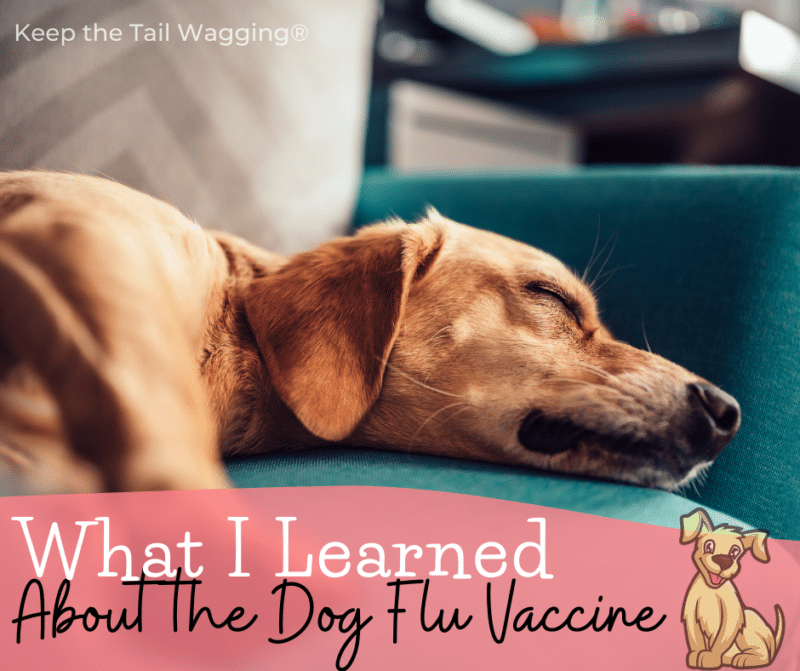




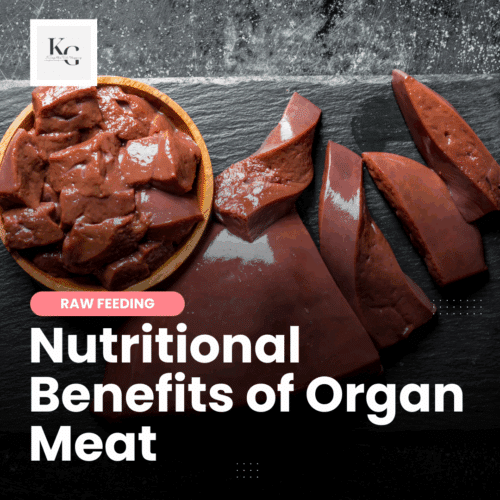


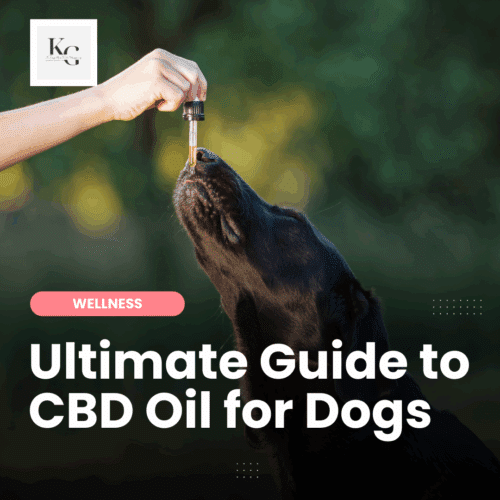
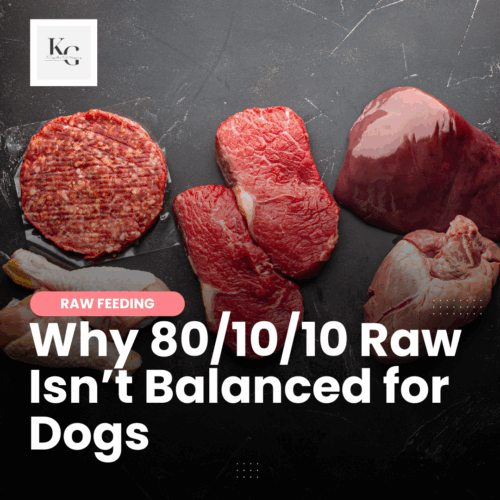





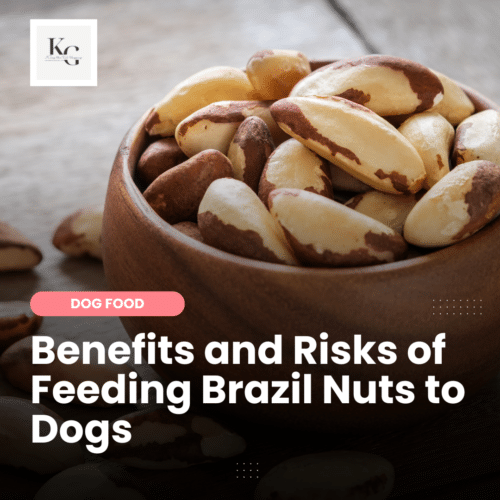


Our dog has been sneezing a lot since having this flu vaccine; we had no choice about this injection because of the need to have them boarded.
Hi Joe
This isn’t a veterinarian forum so you won’t get an answer. However, if you do find out about the immunity, will you return and let me know. I always thought it was like the human flu and dogs could get it repeatedly, but I’m not certain.
My dog caught the virus this month from a visiting dog. Took 3 weeks to get better.
Very stressful for the dog and myself. cost 75 dollars to vet. Does anyone know will my dog now have a immunity to this disease
My Zaz got the annual for CI yesterday. Before him getting it the vet gave him a clean bill of health. After the vaccine he was so hyper and wouldn’t calm down. He sleeps by my bed in his own. Zaz was hyper, anxious,pacing,looking for and sniffing every corner. He tried climbing on my bed. He was disoriented. I called him by name got a blank stare. His pupils were dilated. I called a vet ER and followed her advice. He calmed down about 3am and slept finally. He is his self finally. I am almost convinced it was the combo shot he got. I notified my vet about it so it’s on Zaz’s record. I’m really rethinking next year. My Zaz is my baby.
Hi Judy, I’m not a veterinarian and cannot advise on vaccinations. I suggest you contact your veterinarian and explain your dilemma to get their best recommendation.
I just found that I am going to have to board my dog for a week in just over 2 weeks. I trust the kennel that I am boarding at but know that many dogs who are boarded there are very active at dog shows, herding competitions, agility and of course dog parks. I know that there is ideally a 3 weeks span between shots. Unfortunately I would have to get the 2nd dose 2 weeks after the first and then be boarded 2 days later. What should I do?
It is early February 2018 and I am researching flu vaccine for dogs (both strains of dog flu). Although my 2 dogs are confined (one is a little ‘house dog’ and the other has a fenced area when she is outside) I know that dog flu has become an issue in certain parts of Kentucky, where we live. A friend who lives not far away just lost 2 of his dogs to something that sounds, from the symptom check-off list, very much as if they both had dog flu. Both were young adult dogs in otherwise good health. Both were taken for veterinary care. No flu tests were run both other tests were, presumably looking to identify more typical canine diseases. Both dogs appeared to be improving, having been placed on antibiotics as a ‘just in case,’ and then both dogs spiraled downward fast and died. In light of the foregoing I have to make a decision as to whether I should get both my dogs vaccinated against dog flu. One is a young adult but the other is a ‘senior citizen.’ I am trying to weigh the risk factor against any contra-indications in the flu vaccine – especially the H3N2 version (or combo shot).
You seem to think that I’m arguing with you when I thought we were just having an interesting discussion. My statement about having an open dialogue with a vet and understanding the risk of disease and vaccinations is speaking to my personal experience with my dogs and the steps I took to make my decision. This is a personal blog where I share my personal experience. I’m not a veterinarian and I make a point in not telling people what they should do, I only talk about what I’ve done in the past and what I plan to do next.
Thanks for the chat and have a great day.
Shouldn’t what? I don’t believe in telling someone what they “should or shouldn’t” do…akin to “right or wrong.” Anyway, I did consult with my vet and did a lot of research prior to making the decision to get my dog vaccinated. As I previously stated dog parks are high risk areas for transmitting illnesses and I take my dog to the dog park a lot because he loves the socialization and exercise. And as I previously stated the park recently experienced an outbreak of kennel cough from contaminated water containers. If someone takes their dog to the park not knowing that their dog is or might be ill and that dog passes it on then therein lies one problem. All it takes it one ill dog to create an outbreak. Again freedom of choice…I respect yours and hopefully you respect mine.
And you shouldn’t. If the risk is high in your area, then you should definitely have your dog vaccinated. My point is only that if the risk isn’t high or if there is no risk, then vaccinating a dog may be risky. In the end, it’s a discussion we should all be having with our veterinarian. With so many dogs having negative side effects from over vaccination, including death, this is too important not to take seriously.
Freedom of choice. I choose differently than you do and make no judgements at all. I choose to not take any risks with my pets that’s all.
While I understand that this comment is in response to Tina, however, I wanted to share that while I think vaccinations can be beneficial for dogs, I personally don’t think it’s a good idea for me to vaccinate my dogs when there isn’t a risk. What I choose to do is have an open discussion with my dogs’ veterinarians and I do my own research so that I can bring questions to the appointment. My dogs haven’t received any vaccinations in 3+ years and they’re all healthy and fine. Every dog is different and every dog parent is different. I don’t think someone’s choice to vaccinate or not vaccinate means they love their dog anymore or less than I love my dog.
Thanks Robin!
I got my dog a flu shot yesterday and he is doing fine…no negative effects. I decided to do it because I take him to a large dog park several times a week and there was a recent outbreak of kennel cough from contaminated water pails. I am taking no chances with my beloved dog. Why do you think they developed Rabies, Distemper, etc vaccines for dogs???
Hi Robin,
My dog just received the vaccine about 3 weeks ago, and he was diagnosed with platelet disorder shortly after. The vet is suspecting he is hemorrhaging. He’s been on steroids and it’s not helping to raise the level of platelets. They have done many tests, sonogram, and x-rays. They can’t find any cause. Can you please advise how you get the info on the vaccine side effects. Maybe your sources might help my vet to determine the cause on my dog, and come up with proper treatment. Thanks a bunch for your help.
Tom Chen.
Hi Dee – you’re right, veterinarians are educated on pet health which is why I asked my veterinarian about his thoughts on the flu vaccine and he doesn’t believe that my dogs are at risk. I don’t believe in exposing my dogs to a vaccination when they are at low risk. At this time, the canine flu isn’t in my area and I don’t believe that I’ll be bringing it home from the office, train, or grocery store (my regular haunts). I am paying attention to the flu and if we begin to see cases in our state, I will have a follow-up discussion with my veterinarian about our risk. He knows my dogs’ health and nutrition history, more than 30 years of experience in pet medicine, and I trust his recommendation. I’m very lucky.
Thank you for your thoughts.
As the other person said, just because you dog doesn’t go out you do. It can get on your clothing which you or a child or a friend can bring into your home where it can live for 48 hours. Rethink your ideas on this flu.
Also someone said oh I titter my dogs, people need to realize that’s nice but within 24hrs that tiger could go away. I know this because I am a vet. Protect your animals according to your vets recommendations remembertgey went to school for your pets health.
I’ve been watching the news for our area as the outbreaks are spreading across the country. I’ll only vaccinate if there is an outbreak in my area. I don’t take my dogs to areas populated by other dogs because it’s tough when walking four dogs; however, I do walk one or two dogs at a time and the information about the virus staying around for 48 hours is important to know. Thanks.
There is currently an major outbreak in Louisville KY, and it’s bad!
46 dogs ebpnded up sick from just one facility last week.
My vet has never recommended the flu shot for our dogs before now, but just about all facilities that board dogs in the Louisville area, as well as and some prior to performing necessary, but non- emergency surgeries, are requiring the dogs be vaccinated first.
The flu stain in our area is so contageous, it will live on most surfaces, including clothing worn into your house, from outside your house, for up to 48 hours, and the incubation period between exposure, until symptoms appear can be up to 10 days, with the dog seeming being perfectly healthy while contaminating everything it even breathes on.
100% of directly exposed dogs contract the virus, and 80% of those dogs will exhibit at least moderate symptoms.
10% will die, although the deaths are usually dogs who are elderly or have otherwise compromised health.
And by the way, a dog sniffing grass on a walk within 48 hours of an exposed dog sniffing the same area of grass will likely become infected.
I am pretty careful and mindful about risks related to vaccinating, and even though I work regularly with shelter and rescue dogs, my personal dogs have never been vaccinated against or contracted an illness like this.
But in light of the current situation in my area, I will vaccinate both of my personal dogs, and will do so immediately.
I was getting one done anyhow, since he will have to be boarded in Sept., but our vet told me today that she changed her mind about my large-breed 15+-year-old dog, and that she now believes the benefits of the vaccine outweigh the risks in an elderly dog.
So she will also get the first of 2 shots later this week.
Thank you for your feedback; I would rethink the canine flu if there was an outbreak in my area, however, Washington has been safe so far. I don’t take my dogs to the kennel, dog park, or other places where they are exposed to other dogs that may be infected with any illness. We’re lucky to have our very own private dog park and the dogs are safe and happy here. Having spoken with many vets about their risk, I’ve been assured that they are at low risk and don’t need the vaccination. For now, to have my dogs vaccinated against the canine flu would be to tax their system unnecessarily, which is what I want to avoid – I love them too much to put them through that without cause.
just and FYI – if you’ve ever had a dog go through the ordeal of the canine flu of ANY strain on ANY level along with the amount of money it takes to “try” and get them better you’ll rethink about passing on the flu shots. Dogs have hemorraged from coughing and I know some that have died from the pneumonia that came on from having the flu. It may not protect 100 percent just like in people but it would certainly lessen the horrific scenario. This virus can shed unknowingly for approximately 3 weeks much like Parvo does. Then you get it home and think it is kennel cough and it isn’t.
Good to know, Alix
I get the human flu shot annually through my company. I’ve done all the research and although I’m not a fan of the vaccination, I think it has helped keep me healthy. This is a bad flu year where I live and people are filling hospital beds and we’ve seen one fatality in a young person. Because of the news, I’m taking a new look at the canine flu and want to believe that it’ll get better as time goes by – the vaccination, that is. I have such distrust in the pet industry that I’m not willing to trust 100% but this is definitely something to watch.
Thanks again.
There’s more than 1 strain of flu. There’s the H3N2 which is considered the new one and then the H3N8. Zoetis also came out with a bivalent vaccine, which is the H3N2 and H3N8 combined in 1 vaccination. It’s becoming increasingly more popular, because typically if someone is already vaccinating for one, they may as well vaccinate for the other.
I personally would never vaccinate my own personal dogs for it, but I titer for everything. I do, however, have to give the bivalent vaccine to all of the dogs that the company I work for has, and I haven’t seen any negative reactions to it (60+ dogs to boot). But, reactions are still possible. Plus, it’s still a new vaccine in the grand scheme of things, so we may not know true effects until years from now.
70 cases! That is crazy. I haven’t heard of a single case in our city, but thanks for the heads up. I won’t be taking my dogs to public areas for a while. Looks like I need to share this blog post again.
Thanks for the heads up, Jim.
I live in the Chicago area. I’m aware of over 70 current cases of CI in the city currently. Most day care and kennels will not board dogs without CI shots and I’m comfortable with that decision. My Golden has had no ill effects from her shots, I’d like to think I’m protecting her from a potentially serious illness.
Going to pass on this. Jack & Maggie hardly even SEE another dog much less come in contact with them.
Our vet, not a “holistic” vet, had the exact same recommendation as your holistic vet when we discussed the vaccine last year during the Chicago outbreak. The issue last year was that the strain was new (which I contend came from the importation of international rescue dogs through O’Hare airport…yeah it happens). The vaccine did not cover the new stain so was ineffective.
My vet recommended that unless we were traveling to the area, or boarding our dogs, that it was not necessary. Of course our dogs are out and about at shows and events so we discussed that too and decided against the vaccine. But our vet included a huge caution. If they exhibited any signs of kennel cough to bring them right in. You see the problem with the flu and why it can claim dogs, is because it looks the same as kennel cough except for the fever. The fever can get very high, very fast and by the time antibiotics are started, it can be too late. The unfortunate thing is that you almost have to consider starting antibiotics where you have mild symptoms because in a compromised dog or a senior to wait can be too long. I have heard of it claiming even healthy dogs in their prime. It is not something to just dismiss.
Interesting. I didn’t know they had a dog vaccine. I wouldn’t get one for Rita since we don’t board her and she doesn’t play with random dogs – just a couple of friend’s/family member’s dogs. I didn’t get one for myself either, but the hubs gots one at work. As long as he doesn’t bring it home, I will hopefully avoid it!
I’ll pass. I don’t feel the need for the flu shot for myself, and I won’t subject my dogs either. If we keep our dogs healthy and build their immune systems, we lesson the chance of them getting the flu.
I got the flu vaccine last year; still go the flu, but was told that it was either a strain not covered or a lighter version, because of the vaccine. I have no idea which is true. This year, I missed my flu vaccine appointment, because Scout was in the hospital. My pharmacist wants to get me back in, but I’m not so sure.
I definitely won’t vaccinate my dogs.
I don’t think I could ever give my dog a flu vaccine. I guess I would have to if I needed to board him and it was a requirement. I don’t like to do the bordetella vaccine either, but sometimes it’s a requirement for boarding. I won’t get a flu shot myself so I can’t see why I would get one for my dog.